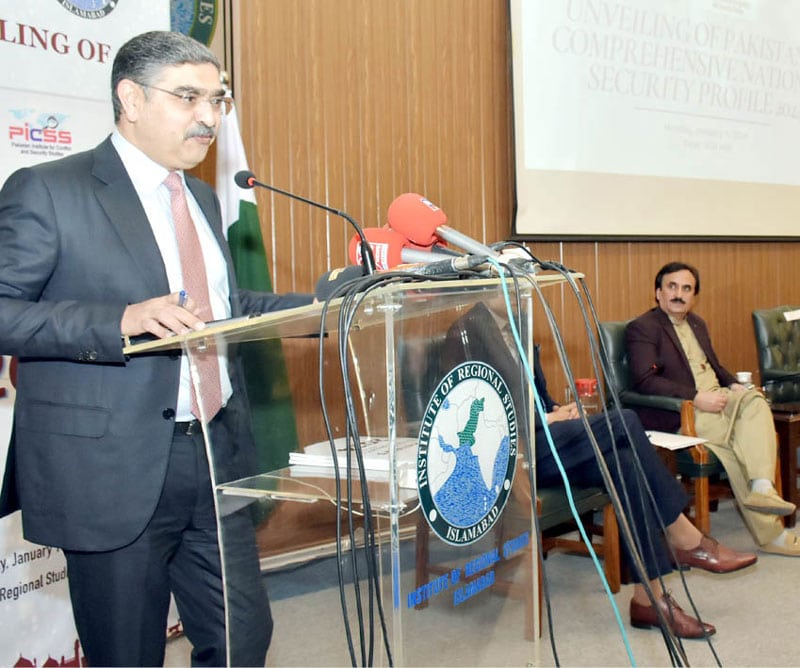Former Caretaker Prime Minister Senator Anwarul Haq Kakar has attributed the rise in terrorism to the proliferation of NATO’s leftover weapons and gadgets now in the hands of militants.
He was addressing as Chief Guest the launching ceremony of Pakistan’s Comprehensive National Security Profile 2024 organized by the Pakistan Institute for Conflict and Security Studies (PICSS) held at the Institute of Regional Studies.
The report provides a detailed analysis of Pakistan’s security landscape, with a focus on the evolving strategies of militant groups.
The event was attended by diplomats, think tank representatives, policy experts, and business leaders.
Senator Kakar emphasized, “We cannot afford to leave this region like the Americans left Afghanistan. If it takes a century to fight terrorism, Pakistan will do so. This is not just a battle against militants; it’s a fight for regional stability.”
The former interim PM also critiqued the notion of justifying terrorism, stating, “In 2014, terrorism wasn’t defeated—it merely relocated to Afghanistan. When the environment became conducive, militants struck back. We must discourage the phenomenon of rationalizing terrorism under any pretext.”
Ambassador Jauhar Saleem, President of the Institute of Regional Studies, highlighted the collective nature of the challenge and called for international cooperation. “Terrorism is a shared threat, and Pakistan should not be left alone to bear the burden. Winning the fight against terrorism requires winning hearts and minds,” he remarked. Abdullah Khan, Managing Director of PICSS, focused on the operational and propaganda strategies of militant groups. “Despite differing ideologies and goals, terrorist groups operating in Khyber Pakhtunkhwa and Balochistan are employing similar tactics, such as showing territorial control through public displays. This raises the question of whether these groups share a common handler. Additionally, their media wings have grown increasingly sophisticated, enhancing their ability to spread propaganda,” he noted.
Gul Dad, Director of Research at PICSS, shed light on the security challenges along Pakistan’s western border. “The entire western frontier is now under threat from various terrorist groups. Moreover, these militants are attempting to reestablish their presence in urban centers of Punjab and Sindh, which poses a significant danger to national security,” he explained.
Nasir Qureshi, President of the Islamabad Chamber of Commerce and Industry, emphasized the importance of data-driven insights. “Reports like Pakistan’s Comprehensive National Security Profile 2024 are invaluable for the business community.










